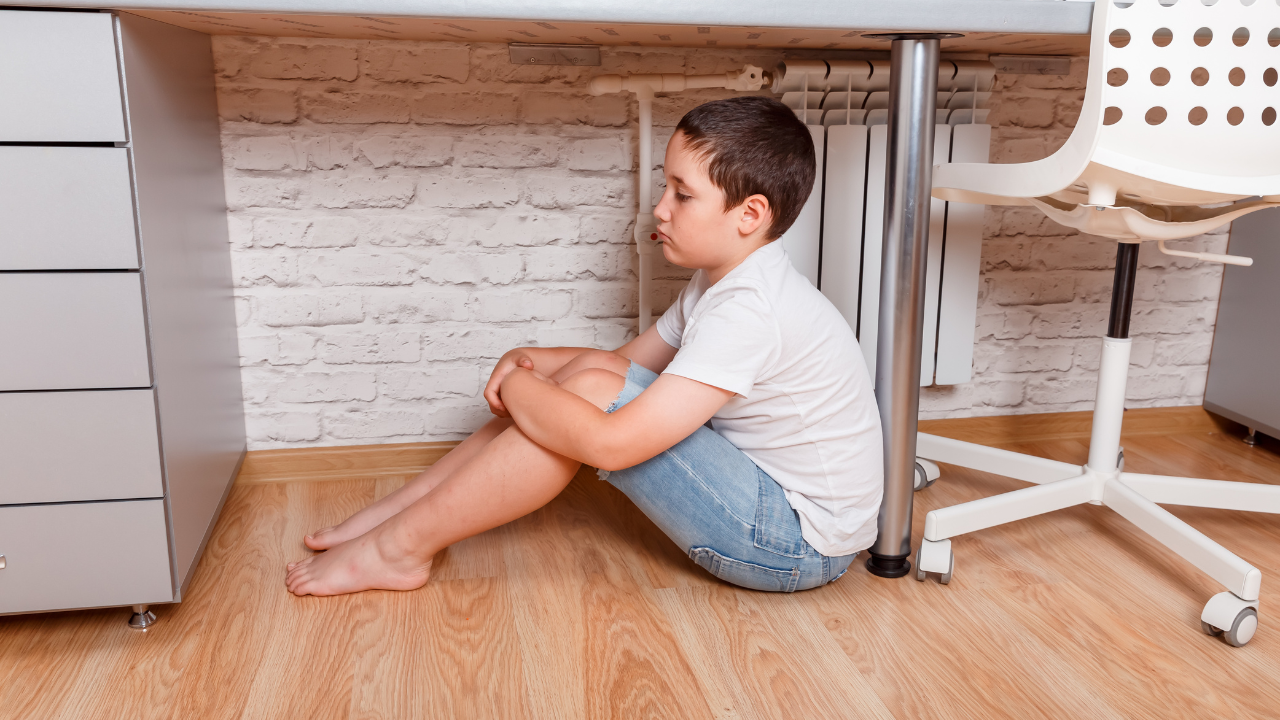Anxiety: What it is and What Parents Can Do to Help.

Parents can take a course to interrupt the anxiety cycle and help
A certain amount of worry is not only normal, but helpful. When you begin to worry about an upcoming event, you might better prepare. However, sometimes it becomes too overwhelming that you avoid it or feel so anxious, you can’t think clearly. Anxiety, in all forms, is when you (or your child) is experiencing a sense of dread, unease surrounding something that is upcoming or that the child fears is upcoming. This may be around challenges in school or sports, it can be around separation, social acceptance, or other experiences. And while the idea that anxiety is not around something actually happening in the moment, it’s not “all in your head”. It’s based on past experiences or real worries. The problem is that children often get stuck in a cycle of anxiety – they are overwhelmed and fearful of a social event, the anxiety gets so high that they can’t think, or take it on, so they avoid it and feel relief, which makes it harder to approach it next time. Thus the cycle of anxiety.
Ways parents often try to help their children
To interrupt that cycle, parents try many things. We sometimes try to use logic to argue why their fears are not substantiated, but this is tricky, because anxiety, just like high stress, creates a physiological response – with cortisol blocking the child’s ability to reason, think or problem solve. And so your well meaning efforts can make them feel dismissed, and they will dig in harder, in fear, feeling that they will be forced into something they cannot do.
On the other hand, parents see how high the stress is and feel they have no other choice but to give in – “Ok, I won’t leave.” “You don’t have to go today.” – and the stress goes down. While there is some value in giving a child a break or lowering expectations, at times, we do this with no full plan to build the confidence to separate or go to that event or try that challenge.
Adding to this challenge is that some anxiety responses, like snapping at parents, fighting, refusing to do things, and even aggression, will likely trigger your own stress response, or be misunderstood as manipulative. So, what CAN you do?
A parent course to learn how to help your child when they are anxious
By understanding the stress response, you can practice strategies that can lower it, or at the very least, not make it worse. In our course: Building Confidence, Trust and Hope: Three Ways to Help an Anxious Child, we offer this understanding.
How you even bring up a challenge with your child can trigger an anxious response. And so, as parents, we try to tiptoe around it, or become vague. This can inadvertently create mistrust and more anxiety. The opposite of anxiety is trust – trust in yourself, in the people around you, or even in a process. So, to build trust, you need to find a way to authentically broach a subject in such a way that is stripped of judgment, bias, and interpretation. In our course, we will help you to do just that.
In addition, feeling understood can lower cortisol. But anyone who has said to their child, “I understand...” knows this can also create an anxious response, and backfire. It is helpful to try to step into our child’s shoes and try to truly see what they are feeling, and even if we do, there are ways to communicate that are more effective.
Our children do need some reassurance and, sometimes, a smaller step to take towards competence. We can help you with that. In order to interrupt the cycle of anxiety, you need not only to lower the stress response, but to take steps towards confidence and competence. Children don't get braver by steeling themselves up and thinking about it, they get brave by doing brave things – one small, manageable step at a time. False reassurance or too big of a push can create more anxiety. This is a difficult task for a parent. We can help.
Join us in our parent community with our brand new course, based on Mariposa Education’s proven method for building social emotional competence, with new content around growing levels of anxiety that children, and their parents, are facing.

